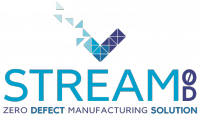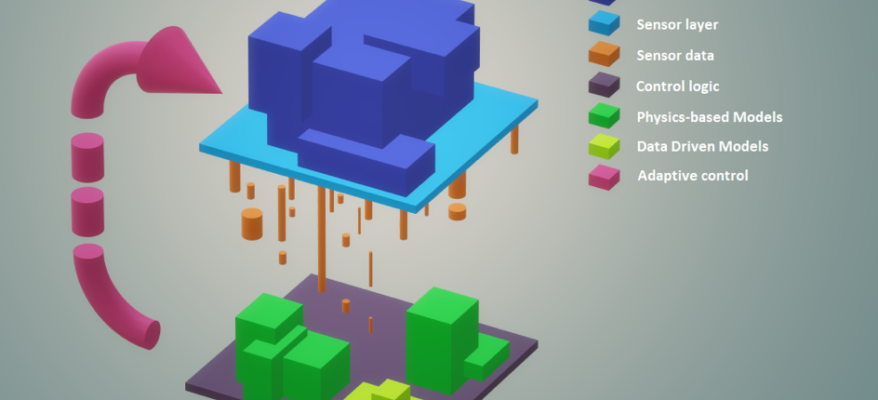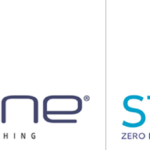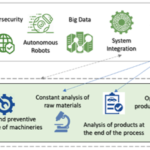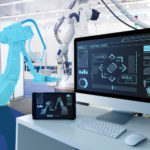Real-time simulation and adaptive control: the road ahead
STREAM-0D successfully links physics-based models with data-driven models (DDMs) and provides a smart adaptive control system for the detection and prevention of defects. In this context, the work of LMS, which is one of the project partners, is crucial.
In our previous article we described the importance of automated data acquisition within the framework of industry 4.0 towards the direction of Zero-Defect Manufacturing (ZDM). The existing OT (SCADA, PLCs) systems and IIoTs are generating vast amounts of data, related with the machine and process states, as well as with product quality. Extracting process control value from these, requires on the one hand, a solid data management and processing infrastructure and on the other hand, robust tools for data transformation[1].
Process control is based mainly on static, closed-loop systems with limited parameterization capabilities and simplified functionalities. These aspects lead to poor defect detection-prevention characteristics. Therefore, enhancing the current control schema’s accuracy, adaptability and effectiveness is essential[2].
The evolution of adaptive control
Physic-based and Data Driven models exhibit exceptional characteristics towards a more adaptive and precise control architecture. Although computationally demanding, the first ones are offering determinism and high accuracy by mathematically formulating complex aspects of the manufacturing processes and products which their underlying physics are already known[3]. Data driven models, as the name implies, offer a probabilistic representation of the system, utilizing machine learning and statistic methods for implementation, along with substantial amount of training and evaluation data[4].
The integration and real-time use of these models can transform the data from the sensor systems by adding control value and creating additional opportunities in assessing, evaluating and optimizing the manufacturing processes[2]. In addition, pieces of an initial framework for implementing complete digital instances of processes and products can emerge from these developments[5].
It’s worth to mention that the concept of adaptive control within manufacturing is not new, the linking of real-time simulation models and process control, only became possible with the major developments in IC Technologies the past decade. Better, more accurate simulation tools, combined with precise data acquisition systems, sensors and monitoring systems, are able to provide a complete approach, exploit correlations and structures within the production data.
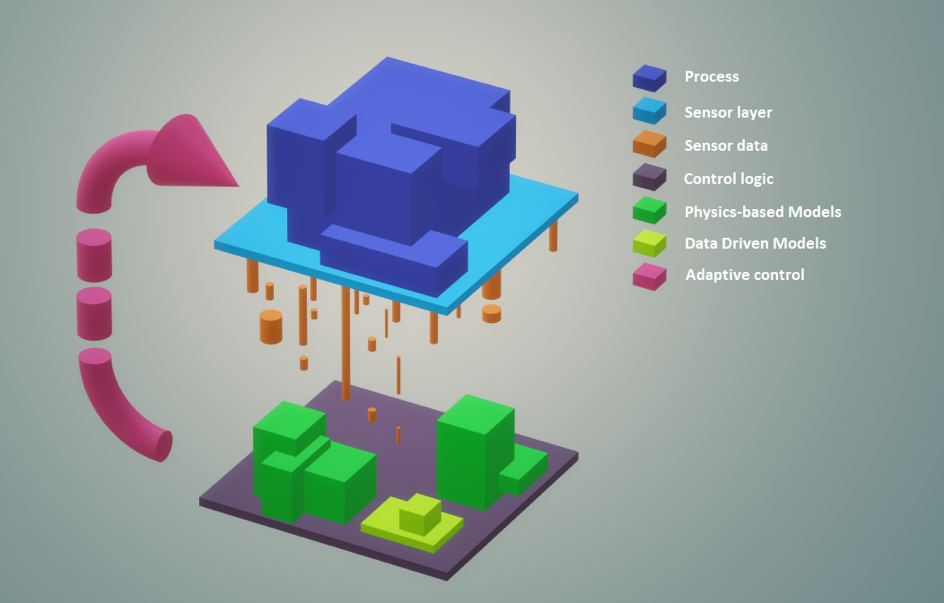
In STREAM-0D, we aim to provide these methodologies and systems under a complete unified solution for the purpose of optimizing the production and achieving Zero defect manufacturing. STREAM-0D successfully links physics-based models with data driven models and provides a smart adaptive control system for the detection and prevention of defects. The per-case customized User Interface, links the modules together, completing in this way the innovative STREAM-0D solution towards Zero-Defect Manufacturing.
—
This article was provided by Kyriakos Sabatakakis, Demetris Petrides, Alexios Papacharalampopoulos, Panagiotis Stavropoulos of the Laboratory for Manufacturing Systems and Automation, Department of Mechanical Engineering and Aeronautics, University of Patras.
LMS leads the activity of online data gathering and data driven models, with a strong contribution in the development and implementation of adaptive data control and decision making algorithms, and in the final integration and pilot implementation.
References
[1] Mourtzis, D., Vlachou, E., & Milas, N. (2016). Industrial Big Data as a result of IoT adoption in manufacturing. Procedia cirp, 55, 290-295. [2] Stavropoulos, P., Chantzis, D., Doukas, C., Papacharalampopoulos, A., & Chryssolouris, G. (2013). Monitoring and control of manufacturing processes: A review. Procedia CIRP, 8, 421-425. [3] Foteinopoulos, P., Papacharalampopoulos, A., & Stavropoulos, P. (2018). On thermal modeling of Additive Manufacturing processes. CIRP Journal of Manufacturing Science and Technology, 20, 66-83. [4] Wu, D., Jennings, C., Terpenny, J., Gao, R. X., & Kumara, S. (2017). A comparative study on machine learning algorithms for smart manufacturing: tool wear prediction using random forests. Journal of Manufacturing Science and Engineering, 139(7), 071018. [5] Tao, F., Cheng, J., Qi, Q., Zhang, M., Zhang, H., & Sui, F. (2018). Digital twin-driven product design, manufacturing and service with big data. The International Journal of Advanced Manufacturing Technology, 94(9-12), 3563-3576.
Follow STREAM-0D on:
